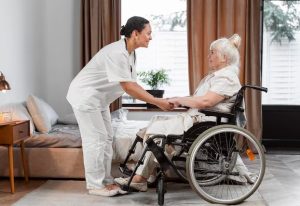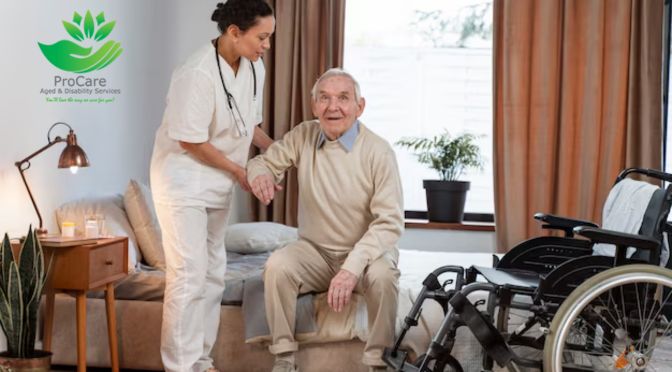Providing aged care service is not anybody’s job. It is a specialist’s job and demands not just professionalism, but a lot of care, compassion, dedication and determination. As such, they have quite a bit of role to play and responsibilities to carry out. On this page, we discuss these roles and responsibilities of aged care service providers.

Understanding the Fundamentals of Aged Care
The first and foremost aspect of the roles and responsibilities played by the professionals of aged care agencies in Sydney include understanding the fundamentals of aged care. The fundamentals of aged care service entails giving those frail souls not only physical but mental support so that they can lead the life of their choice and that also with self-confidence. Here is an account of the most crucial roles and responsibilities of the aged care providers.
Assistance With Preparing Nutritious Meals
Meal planning and facilitation for the same on the behalf of the aged support recipients is just one of the numerous duties of an aged care provider. The daily routine of an aged care support provider includes sourcing, preparing, serving, and administering meals as well as drinks as and when needed. Because many elderly patients have tight dietary restrictions, healthcare providers need to be aware of this and avoid any potentially deadly confusion. It’s also a good idea to learn about the cuisine and nutrition plan of an assisted living home in advance. This is to make sure the meals provide adequate nourishment and sustenance, ensuring good health, mind, body and spirit!
Providing Information to the Support Recipients
One of the most crucial responsibilities of these aged care agencies in Sydney like anywhere is providing the adequate information to the support recipients as well as their families is the logic and reason behind the steps they take.
However, there are stringent regulations in place to ensure that the senior support recipients are in capable hands. Educating the aged populace and their families on what to expect from them is the responsibility of the aged care providers. Additionally, if there are any updates or modifications to the services needed, they must notify the elderly as well as their families, and the reason behind it.
Administration of the Right Medicine at the Right Time
It is the duty of these aged care providers to administer the right medicine at the right time as per the prescription of the doctors of these senior citizens subject to their support. And the support workers must have the adequate training to do so.
The elderly care recipient believes that medication administration happens according to a predetermined timetable. For their health and transparency, the aged care provider also lets them know about the medication in advance. In addition to being administered, the medication must be maintained, documented, and stored in accordance with legal requirements.
Treating the Recipients With Dignity and Respecting Their Privacy
Individuals receiving aged care are acutely aware of each aged care resident’s mental abilities. They therefore adhere to the strictest guidelines for maintaining their privacy and dignity. A fundamental component of aged care providers’ training is respect for the elderly, which they can demonstrate by rigorously adhering to eight crucial dignity-related aspects. These are may include by not restricted to:
- Decision-making and authority
- Individual cleanliness
- Nutrition and eating habits
- Pain management
- Integration with society and community
- Providing adequate personal space
Even seemingly insignificant things might hold immense significance for someone who has surrendered their individuality to a stranger. The recipients feel more at home in the facility and gain trust and well-being when they are treated with respect and value.
So if you have an elderly in your family who is looking forward to getting the support and care to lead life with autonomy, ProCare Aged and Disability Services Pty Ltd is the best name to turn to. Call us at 1800 710 021 to book an appointment with us to discuss the care and support needs of your loved one.



 Skip to content
Skip to content